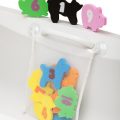Create the conditions for working on your homework
Make sure that the student does not procrastinatestudying until late at night. Let him start working right after he gets home, eats and rests a little after school. And of course, you can't expect to do all the assignments in the morning - most likely, the child will be sleepy and will make mistakes in a hurry. If you know how to do your homework quickly, there will be some leftplenty of free time for favorite things. Photo: Getty Let your child get comfortable at the desk. Help him create a working atmosphere: ventilate the room, turn on bright lights. No matter how tempting it is to crawl into bed or lie down on the couch with his books, don’t let him — he definitely won’t be able to concentrate and will be drawn to sleep. Remove everything that interferes with doing homework, including your phone, tablet, and TV. They will only get in the way. If the student does homework to music or the sounds of his favorite cartoons, he won’t be able to concentrate. If possible, close the door to the child’s room so that no one disturbs him. This way, he will be able to create a working mood, not be distracted by extraneous sounds, and ultimately quickly cope with the tasks.
If you know how to do your homework quickly, there will be some leftplenty of free time for favorite things. Photo: Getty Let your child get comfortable at the desk. Help him create a working atmosphere: ventilate the room, turn on bright lights. No matter how tempting it is to crawl into bed or lie down on the couch with his books, don’t let him — he definitely won’t be able to concentrate and will be drawn to sleep. Remove everything that interferes with doing homework, including your phone, tablet, and TV. They will only get in the way. If the student does homework to music or the sounds of his favorite cartoons, he won’t be able to concentrate. If possible, close the door to the child’s room so that no one disturbs him. This way, he will be able to create a working mood, not be distracted by extraneous sounds, and ultimately quickly cope with the tasks.
How to quickly make lessons with planning
Look with your child at what is assigned for homework:which subjects and which tasks. Arrange them in order of importance or depending on the amount of work. You can’t grab everything at once: determine which tasks require more time, and which ones - a few minutes. It’s better to start with the simplest tasks. The kid will quickly cope with them, and it will be easier for him to do the rest with the thought that there is very little left. Determine the time during which the child is ready to complete all the tasks, and set a timer on the clock. This simple technique will allow you to keep track of time and help you understand which exercise he is stuck on and needs help. Take a break for a couple of minutes every half hour. To do this, it is enough to move away from the workplace, do a few simple exercises so that the body and eyes can rest. You can drink water or tea, have a snack of fruit - this will increase efficiency. Using these tips, you will teach children to quickly cope with homework. At the end of the work, be sure to praise your child for his efforts and allow him to do something interesting and enjoyable. Such a reward for work will be an excellent motivation. The student will receive high marks, and the problem of completing homework will cease to exist for both of you.









